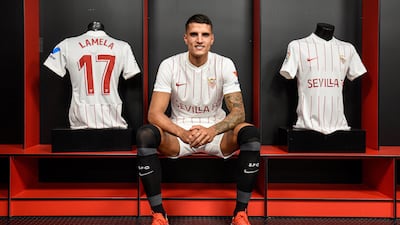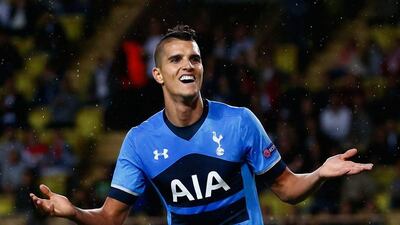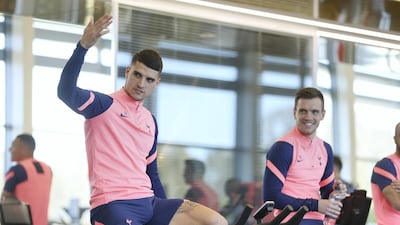If the Gareth Bale era at Tottenham ended with his comeback tour last season, now the post-Bale era is over, too. Erik Lamela’s move to Sevilla sees the departure of the last of the “magnificent seven,” as they were inaccurately dubbed, the players bought with proceeds of Bale’s 2013 sale to Real Madrid.
Collectively, they would never escape the bizarre verdict of the former Tottenham forward Garth Crooks, who infamously declared: “Spurs have sold Elvis and bought the Beatles.” In reality, only Christian Eriksen merited anything remotely like that kind of hyperbole. The Dane’s price - £12 million – rendered him a bargain; had Tottenham cashed in on him before the final few months of his contract, when Inter Milan paid £17 million for him, then Spurs would have made many times their original investment.
More importantly, Eriksen lent class, creativity and consistency. His return of 69 goals and 89 assists in 305 games was outstanding. The Dane was the sole unqualified success from that £105 million spending spree, the lone remnant of it to prove catalytic when Mauricio Pochettino took Tottenham on their most sustained spell near the top of the table since the 1960s. That improvement came in spite of most of them, not because.
Roberto Soldado was a crushing failure, albeit one whose impotence became irrelevant when Harry Kane emerged. Paulinho’s strange and brief Barcelona career was a reminder of the quality Spurs briefly saw before Pochettino’s appointment, but rarely thereafter as he was soon exiled. Vlad Chiriches and Etienne Capoue were also gone in 2015, both also at a loss. Capoue at least showed some staying power at Watford and became a Europa League winner with Villarreal. Along with Eriksen, Nacer Chadli was alone in producing a profit; with 11 league goals in 2014/15, he was at least pivotal in Pochettino’s debut year.
Then there was Lamela, the biggest of the buys and the last of the survivors. A £30 million recruit departed as the makeweight in a deal to bring in Bryan Gil from Sevilla. Tottenham’s tribute to him included the phrase “a club man through and through.” Lamela built a bond with the supporters. “I felt the shirt the same way you did,” he wrote on Instagram. “I’m going to carry this club with me forever. The memories will stay with me forever.”
His valedictory campaign offered memories that were both indicative and deceptive. Lamela scored the goal of the Premier League season with his rabona against Arsenal; it was his goal of the year in another sense, as it was his solitary league strike. Perhaps he mastered the spectacular but not the mundane: it was not even his greatest rabona, a mantle that rested with a 2014 effort against Asteras Tripoli. But Lamela’s March rabona against Arsenal came in a game when he was sent off. A wind-up merchant’s antics backfired then; they aided Tottenham in the 6-1 win at Old Trafford when Anthony Martial was red-carded for his reaction to Lamela. There was the sense that Jose Mourinho liked having an agent provocateur. Sometimes, though, he was too distracted by the acrimony to focus on the football.
That a disproportionate number of his league goals came against elite sides spoke to his ability but there were too few of them: just 17 in eight seasons, after 15 in his final year at Roma alone. He was the Bale replacement who became both cult hero and fringe figure, overtaken by others like Dele Alli and Son Heung-min. A highlights reel packed with trickery, fine touches and terrific finishes looks impressive but there were only 95 league starts to go with those 17 goals. Ultimately, there were too few of either.











